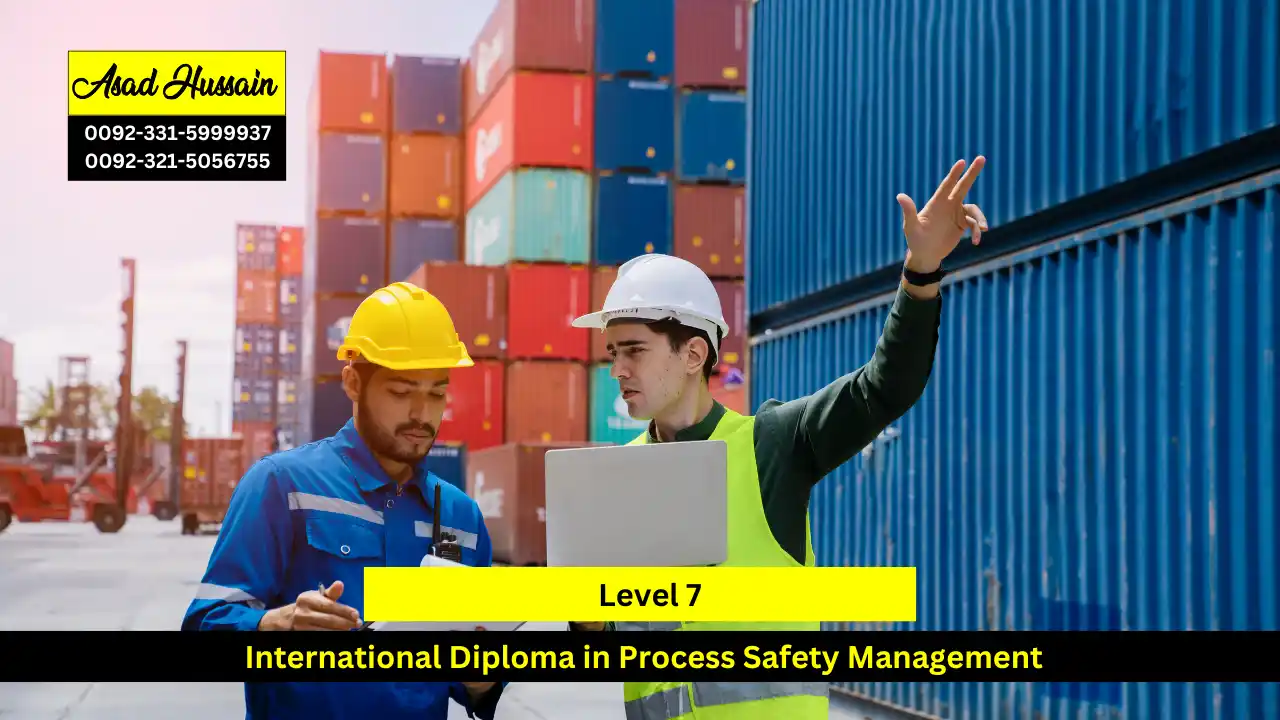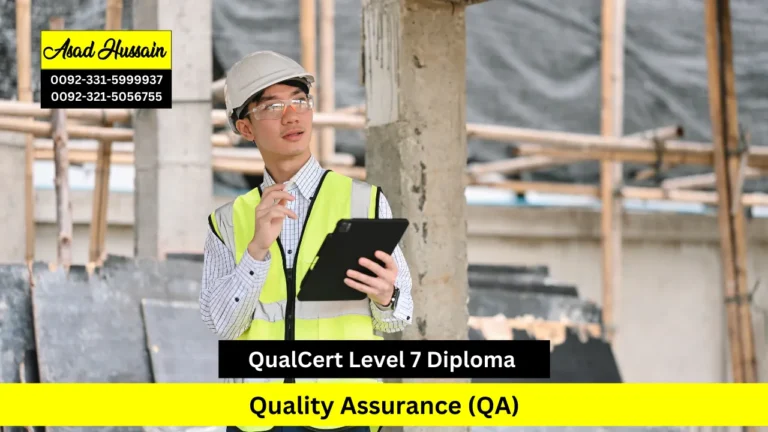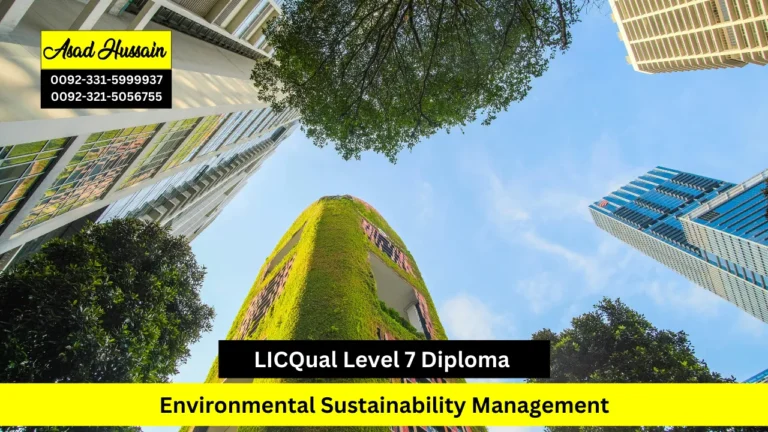In an era where safety and efficiency are paramount in industrial operations, the importance of Process Safety Management (PSM) cannot be overstated. The Qualifi Level 7 International Diploma in Process Safety Management stands out as a premier qualification for professionals seeking to advance their careers in this critical field. This diploma not only enhances one’s technical knowledge but also equips professionals with the strategic skills necessary to lead and innovate in process safety.
Process Safety Management is a disciplined framework for managing the integrity of operating systems and processes that handle hazardous substances. Its goal is to prevent the release of any substance that could potentially cause harm to workers, the public, or the environment. PSM covers a range of activities, including the design, operation, maintenance, and management of process systems. It is essential in industries such as chemical manufacturing, oil and gas, pharmaceuticals, and any sector where hazardous processes are integral to operations.
The Qualifi Level 7 International Diploma in Process Safety Management is designed for professionals who are already in the field and looking to enhance their expertise. This diploma is recognized globally, making it a valuable credential for those aiming to work in international settings.
The Qualifi Level 7 International Diploma in Process Safety Management is a powerful qualification for professionals dedicated to advancing their careers in this vital field. With its comprehensive curriculum, global recognition, and focus on practical skills, this diploma prepares you to tackle the challenges of process safety with confidence and expertise. Whether you are looking to enhance your current role or explore new opportunities, this diploma is a step towards a safer and more successful future in industrial operations.
Embark on this journey to master the art and science of process safety management, and make a significant impact on the safety and efficiency of industrial processes worldwide.
Program Highlights
The Qualifi Level 7 International Diploma in Process Safety Management consist of 60 credits for the completed qualification.
Mandatory Units
- Process Safety Management Systems
- Risk Based Process Safety
- Process Safety Culture and Human Factors
- Development as a Strategic Manager
- Bachelor’s in engineering degree or;
- Master’s in engineering degree or;
- Degree/Diploma in chemical, instrumentation, mechanical or relevant process safety discipline
- A minimum of 3 years’ work experience which demonstrates current and relevant industry knowledge.
Process Safety Management Systems
- Understanding Regulatory Frameworks: Gain a comprehensive understanding of the regulatory frameworks and standards governing process safety management across various industries.
- Designing Safety Management Systems: Learn to design and implement effective process safety management systems tailored to organizational needs and industry requirements.
- Evaluation and Improvement: Develop the skills to evaluate existing process safety systems and identify areas for continuous improvement.
- Incident Investigation: Acquire the ability to conduct thorough investigations of process-related incidents to determine root causes and prevent future occurrences.
- Documentation and Reporting: Master the art of documenting and reporting process safety information accurately and efficiently.
Risk Based Process Safety
- Risk Assessment Techniques: Understand and apply various risk assessment techniques, including HAZOP (Hazard and Operability Study), LOPA (Layers of Protection Analysis), and FMEA (Failure Modes and Effects Analysis).
- Quantitative Risk Analysis: Gain proficiency in conducting quantitative risk analyses to assess potential hazards and their impacts on operations.
- Risk Mitigation Strategies: Develop effective risk mitigation strategies to minimize the likelihood and consequences of hazardous events.
- Decision-Making Under Uncertainty: Enhance decision-making skills in uncertain and complex process safety environments.
- Emergency Response Planning: Learn to develop and implement comprehensive emergency response plans tailored to specific risks and scenarios.
Process Safety Culture and Human Factors
- Safety Culture Development: Understand the key components of a strong safety culture and learn strategies to cultivate it within an organization.
- Human Factors Engineering: Explore the role of human factors in process safety and learn how to design systems that accommodate human capabilities and limitations.
- Behavioral Safety: Gain insights into behavioral safety approaches and techniques to influence and improve safety behaviors among employees.
- Communication and Leadership: Enhance communication and leadership skills to effectively promote and sustain a safety-first culture.
- Change Management: Learn to manage organizational change in a way that supports and enhances process safety initiatives.
Development as a Strategic Manager
- Strategic Thinking: Develop strategic thinking skills to align process safety goals with overall organizational objectives.
- Leadership and Management: Enhance leadership and management capabilities to drive process safety initiatives at a strategic level.
- Stakeholder Engagement: Learn to effectively engage and manage stakeholders, including employees, management, regulatory bodies, and the public.
- Performance Measurement: Acquire the ability to develop and use key performance indicators (KPIs) to measure and improve process safety performance.
- Innovation and Continuous Improvement: Foster a culture of innovation and continuous improvement to keep pace with advancements in process safety technologies and practices.
The Qualifi Level 7 International Diploma in Process Safety Management is designed for professionals who are committed to advancing their careers in the field of industrial safety. This course is ideal for safety managers, engineers, consultants, and operations supervisors who are responsible for the integrity of hazardous processes within their organizations. It is also highly beneficial for those in leadership roles who need a deeper understanding of process safety to make strategic decisions. Additionally, professionals aspiring to specialize in process safety management or seeking to transition into this critical area from related fields such as chemical engineering, environmental management, or occupational health will find this diploma invaluable. The program caters to individuals looking to enhance their expertise, stay abreast of industry best practices, and achieve globally recognized credentials that bolster their career prospects and professional growth.







